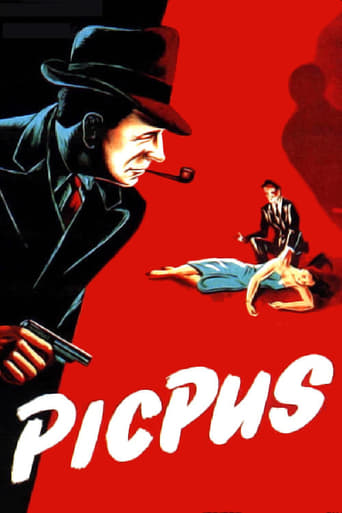"Picpus," released in 1943, is a French film produced by Continental Films, a company established during the German occupation of France in World War II. Directed by Richard Pottier, the film is an adaptation of the novel "Picpus" by Georges Simenon, featuring the iconic character Inspector Maigret, portrayed by the renowned actor Albert Préjean. The plot revolves around Maigret's investigation into the murder of a wealthy woman, leading him through the intricate social layers of wartime Paris. The film's setting and narrative provide a fascinating glimpse into the complexities of life under occupation, blending crime-solving with subtle commentary on the era's societal tensions. The film's production by Continental Films adds a layer of historical intrigue, as the company was known for navigating the delicate balance of producing entertainment that was acceptable to the German authorities while maintaining appeal to French audiences. "Picpus" manages to tread this line by focusing on a gripping detective story that avoids overt political statements, yet the backdrop of occupied Paris is ever-present, subtly influencing the characters' actions and the unfolding mystery. The film's cinematography captures the moody atmosphere of the city, with shadowy streets and dimly lit interiors enhancing the noir feel of the narrative. Albert Préjean's portrayal of Inspector Maigret is central to the film's success, bringing a nuanced performance that captures the detective's dogged determination and empathy. Préjean's Maigret is both a product of his time and a timeless figure, navigating the moral ambiguities of wartime France with a steadfast commitment to justice. The supporting cast, including actors such as Juliette Faber and Jean Tissier, adds depth to the ensemble, each character contributing to the rich tapestry of Parisian life depicted in the film. "Picpus" remains a significant work in the context of French cinema during the occupation, offering viewers not only a compelling mystery but also a window into the cultural and social dynamics of the period. While the film's production by Continental Films raises questions about art and collaboration during wartime, "Picpus" stands as a testament to the resilience of French filmmakers and actors who continued to create meaningful work under challenging circumstances. The film's enduring appeal lies in its ability to engage audiences with a classic detective story while hinting at the larger historical forces at play.
Год1943
Продолжительность95 мин
Жанрыдетективдрамакриминал
Страны производстваFrance

